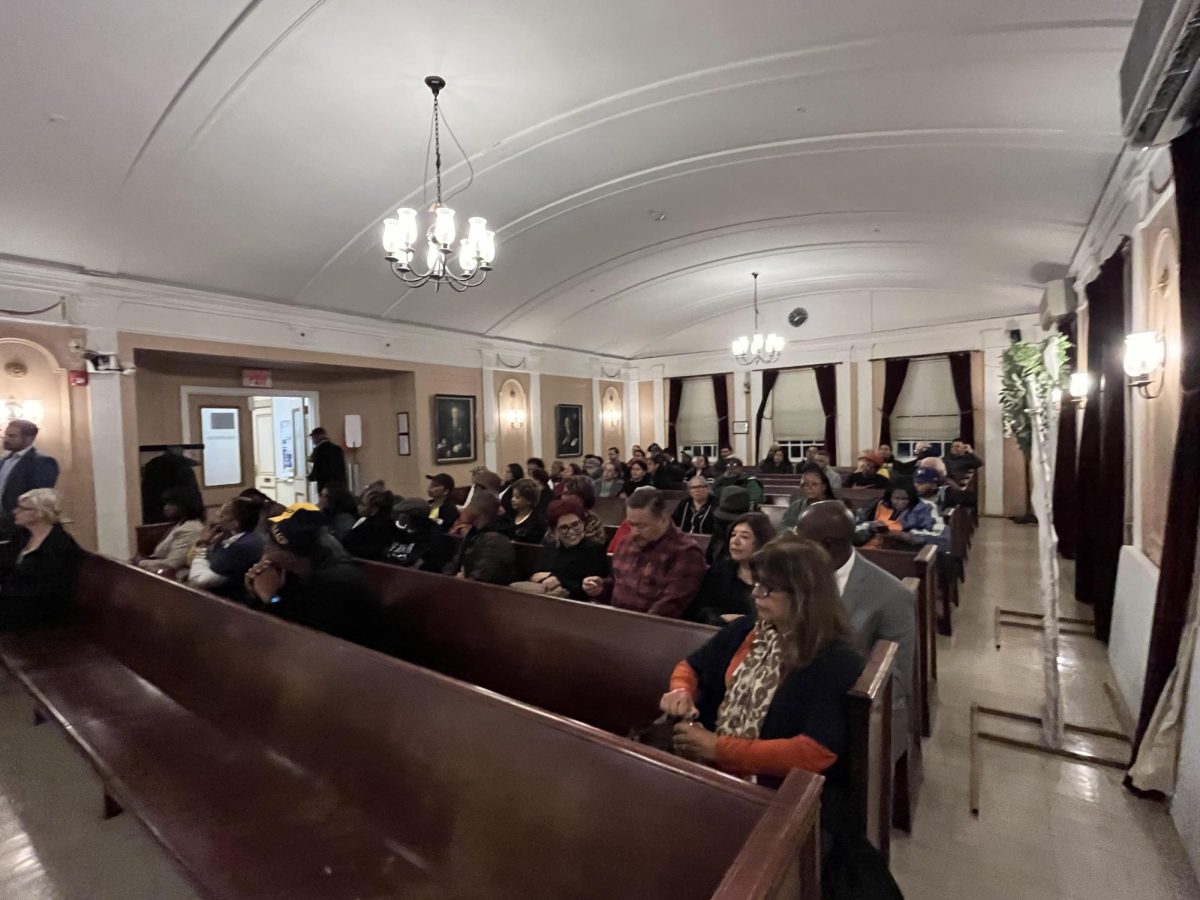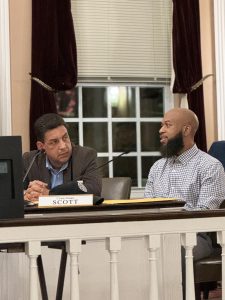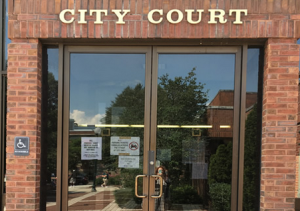A bright idea for sharing solar energy
Group proposes solar on city buildings
April 26, 2023
Powering Peekskill homes with energy generated by the sun is the goal of Ecological Citizen’s Project co-directors Jason Angell and Jocelyn Apicello. The couple appeared before the Common Council on April 17 with a presentation to bring one megawatt of solar energy to Peekskill.
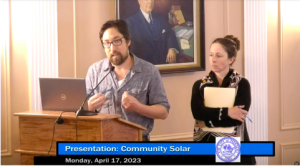
Working Power is partnering with the Ecological Citizen’s Project (ECP) to develop and finance this project. Ian Fischer of Working Power participated in the presentation through Zoom. Working Power provides investors who are committed to sustainability with project development partners rooted in the community.
Angell and Apicello, through their non-profit Ecological Citizen’s Project, believe solutions for global problems can be demonstrated and tackled on a local level. They have shown they are rooted in the Peekskill community, literally, as the organization that created Regeneration Farm behind Main Street’s Lepore Park. Working Power has more than a decade of development and innovative financing experience. The company has developed 15 megawatts of solar in Washington DC, New York, Connecticut and New Jersey along with California, Colorado and Maryland.
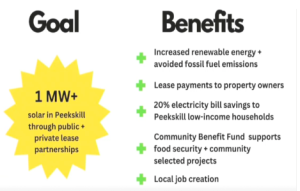
The community solar model Angell and Apicello presented involves public and private lease partnerships. This model of generating electricity offers local and economic benefits that are controlled democratically rather than private investors receiving most of a project’s economic returns. Ecological Citizen’s Project and Working Power plan on reaching their target of one megawatt to achieve economic viability. “We would develop more but one megawatt is where it becomes economically viable and the benefits flowing from the project are significant enough,” said Angell.
Nine different city properties were shown in the presentation and deemed to have solar potential based on a first assessment of the city of Peekskilll. These properties would be able to generate 1.125 megawatts of solar energy according to initial calculations by ECP. “The city has enough properties with potential to move this project forward and make those benefits come home to the city of Peekskill,” said Angell.
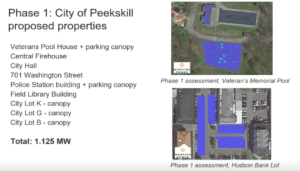
Construction would begin in March 2024 if ECP can hit one megawatt of solar with the project operational by August 2024. “The construction would be done by local contractors with sufficient experience with what we want to build,” said Fischer. The ECP is in talks with the Peekskill Housing Authority in partnering to ensure that only Peekskill households receive the electrical bill savings promised. The nine properties would include the pool house at the Veteran’s Memorial Pool in Depew Park and a parking canopy. The Central Firehouse, City Hall, 701 Washington Street (former Centennial Hose building) the Police Station with a parking canopy, Field Library building, and canopies on city owned parking lots K, G, B.
The benefits of generating 1.125 megawatts of energy include electricity bill savings of some 20 percent for 375 lower to middle income Peekskill households, increased renewable energy, property lease payments to the city of Peekskill of $22,501 annually, a community benefit fund of approximately $30,000 annually and creation of 21 jobs, 16 indirect jobs and 15 induced jobs for a total of 52.
Councilman Brian Fassett showed support for this project along with the potential jobs it could create but expressed concerns whether those jobs were long term or temporary. In response, Angell said the potential jobs are for building the panels and working on the project. He said they envision working with groups that could make solar development a trade for future solar projects in Peekskill.
“There will be ongoing jobs for the operation and maintenance of the solar systems and that’s best done by people who live in the community. We are not trying to get someone from Buffalo, DC, or Philadelphia to take care of the panels in Peekskill.” said Fischer. ECP and Working Power hope that after the goal of one megawatt is reached, more projects will come bringing more jobs and opportunities with it for Peekskill citizens.
Funding from the solar project would go to expanding projects at the Peekskill Regeneration Farm and into a community benefit fund. In addition, the ECP is partnering with the Youth Bureau for two paid apprenticeship positions on the farm and hopes to work with the Senior Nutrition Program.
A watt is a unit of energy, which is the rate energy is produced or consumed. A single watt is a very small measurement so when talking about powering houses, it’s better to use the term kilowatt which is 100 watts or 1 megawatt which is 1,000 kilowatts.






